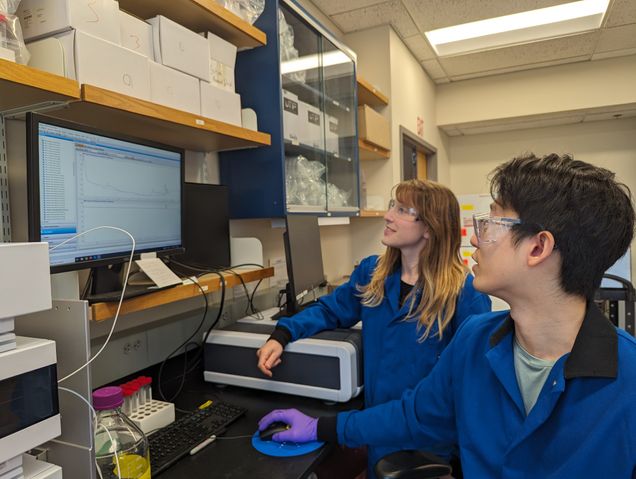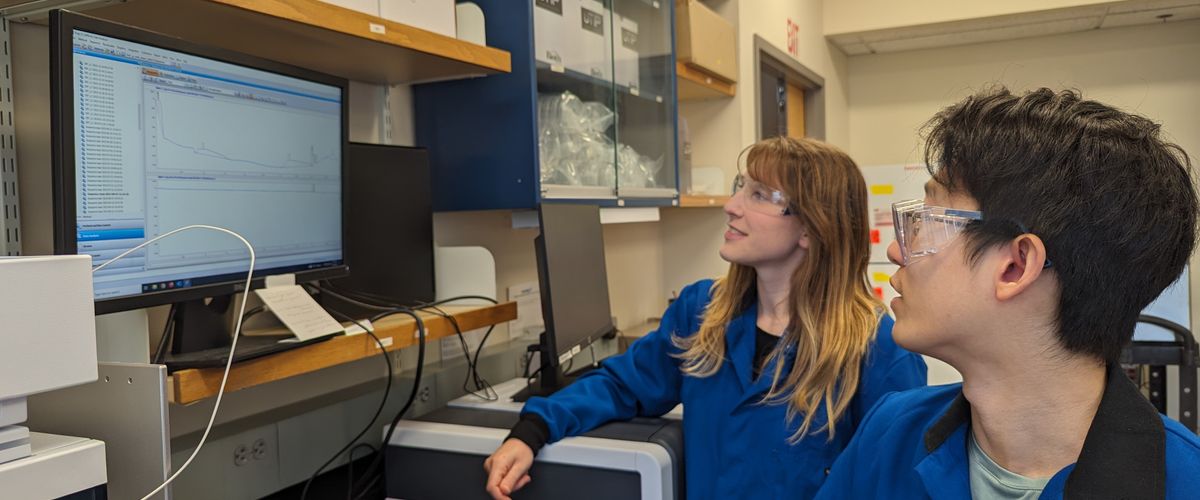By Chloe de Leon
Assistant Professor Michelle Teplensky (BME, MSE), Principal Investigator of the Teplensky Lab, received the Biomedical Engineering Society’s 2026 Cellular and Molecular Bioengineering (CMBE) Rising Star Award.
This award recognizes investigators in labs less than six years old who develop healthcare solutions through engineering. Teplensky applied for the award with an abstract describing an approach to use nanomaterials that enhanced the potency and personalization of vaccines, work led by PhD Student Ezra Cho. This work has just been published in the Proceedings of the National Academy of Sciences November 3 issue.

Through the design of the nanomaterials, the team controlled components of the vaccine and their resulting release rate inside cells to ultimately change the potency of these immune targets. With tuned release, the vaccines can encourage a person’s immune system to produce a tailored response and potentially generate stronger antibodies against viruses.
Using nanomaterials to control the structured presentation of vaccines could make existing vaccines more effective and more specific across different demographics such as age, sex, and any immune strength considerations (such as those who are immunocompromised).
“We can manipulate nanomaterials a lot easier and quicker than manipulating biological therapeutics themselves but ultimately have the same effect on changing the potency of the immune response,” Teplensky said.
Teplensky believes their work demonstrates how nanochemistry can modulate biological responses. At Boston University, her team’s work highlights themes of convergent research across disciplines.
“I’ve actually been able to have wonderful conversations with colleagues in mechanical engineering who are using the same types of nanomaterials for completely different purposes. It really highlights the power of nanotechnology and its ability to bring together distinct areas of engineering at BU!” Teplensky said.
Beyond the academic success of Teplensky and her team’s research, the CMBE Rising Star award also considers a lab’s contribution to “diversity, equity, and inclusion.” Teplensky emphasized a distinct culture of inclusivity and collaboration within her scientific environment.
Teplensky will be recognized at the 2026 CMBE Awards Symposium in January, where she will present the lab’s findings.
Their research illustrates how work across engineering and biology can improve vaccine technology and make immunization more effective and personalized across diverse groups.
